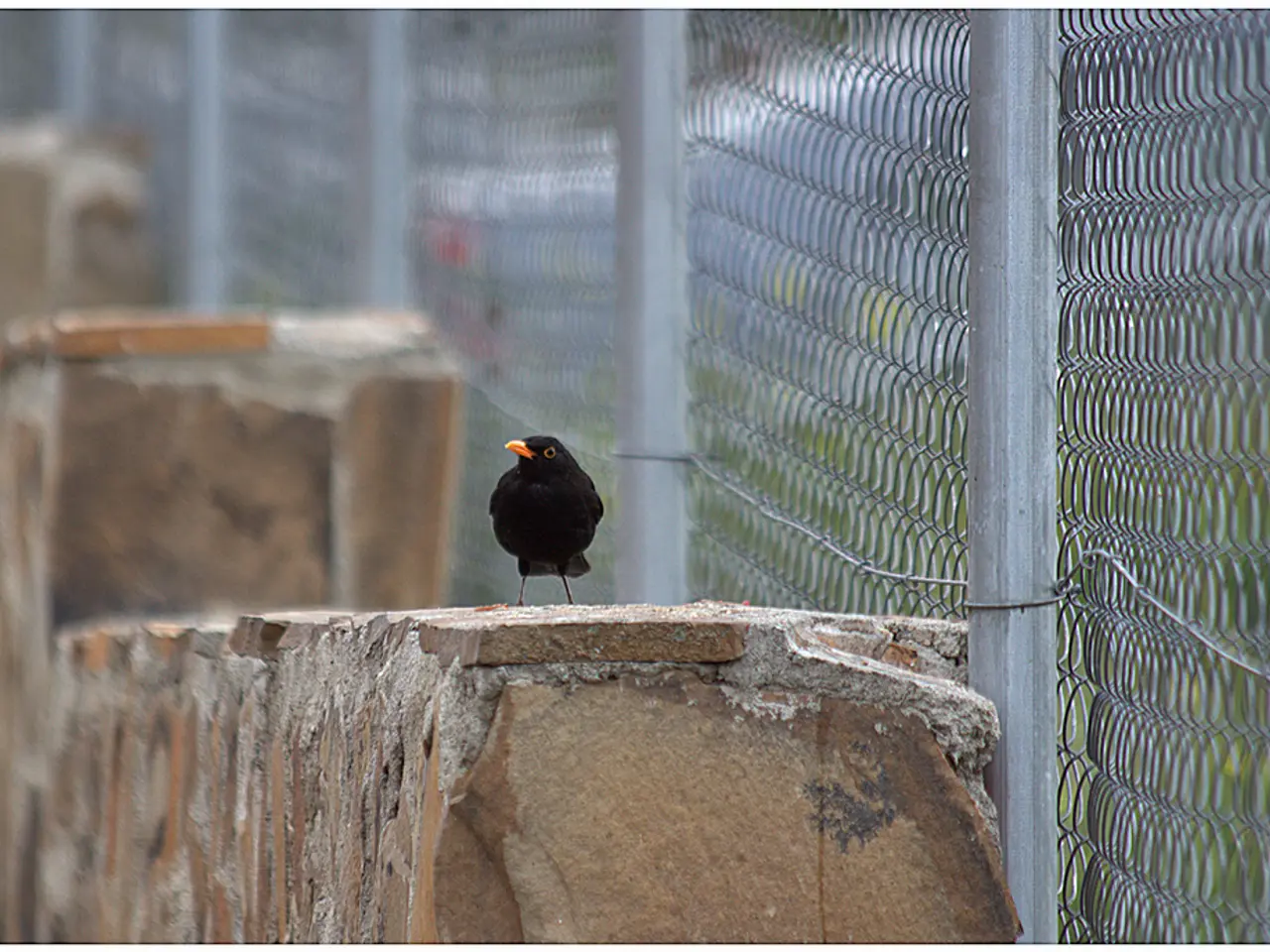Bird flu cases confirmed in South Africa's Western Cape region; Public advised to remain alert and cautious
In a recent development, outbreaks of the highly pathogenic avian influenza (HPAI) have been confirmed in chickens in the North West and Mpumalanga provinces, as well as in farmed ducks near Paarl in the Western Cape.
The Western Cape government is urging the agricultural sector to take action to prevent the spread of avian influenza in poultry. Despite these outbreaks, consumers can safely consume poultry products from grocery stores, as there is currently no evidence of human-to-human transmission of avian influenza.
The Western Cape Department of Agriculture has emphasized strict biosecurity measures, surveillance, vaccination, and public vigilance as key strategies to combat the spread of HPAI.
- Biosecurity Measures: Poultry producers are advised to reinforce biosecurity protocols, such as tightening access controls to farms, thoroughly disinfecting vehicles and equipment, using deterrents like reflectors to keep wild birds away, and spraying antivirals around poultry houses to reduce infection risk from outside sources.
- Vaccination: South Africa has issued its first permit for vaccination against avian influenza, specifically allowing the vaccination of broiler breeder flocks with an H5 strain vaccine. This initiative started in mid-2025 with a strategic rollout aimed at increasing flock immunity and preventing severe economic losses seen in prior outbreaks.
- Surveillance and Early Detection: Authorities are strengthening surveillance of poultry and wild bird populations to detect early signs of HPAI. This includes monitoring and reporting of dead wild birds, which can be indicators of virus presence.
- Public and Industry Communication: The government, together with the poultry industry, is urging the public and poultry farmers to remain vigilant but not alarmed, promoting awareness and prompt reporting of outbreaks.
- Handling Outbreaks: In previous outbreaks, millions of birds have been culled. Although there is no general compensation for affected farmers, there have been legal cases demanding compensation. Rapid and coordinated response to outbreaks remains critical to minimize impact.
- Food Safety and Hygiene: While not specific to avian influenza prevention, general recommendations emphasize optimal hygiene practices in handling poultry products, aligning with broader public health measures.
The affected ducks and related flocks of chickens were voluntarily and humanely culled to prevent further spread of the disease. The bird flu outbreak in the Western Cape has caused fatalities among great white pelicans in the Cape Town area.
The Western Cape government urges public participation in preventing the spread of avian influenza in poultry. The department has advised the public to avoid handling sick or dead wild birds without proper protective gear and to report any unusual bird deaths to local authorities.
Officials advise the public to stay alert but not alarmed regarding the bird flu outbreaks. Suspected outbreaks in poultry should be reported to the local State Veterinarian immediately. This is the first mass mortalities of wild birds due to bird flu in the Western Cape since 2022.
Through vigilance and cooperation, the public, poultry industry, and communities can help prevent the further spread of avian influenza. This is the first reported wild bird case in the Western Cape since April 2024. The bird flu outbreaks occurred in multiple provinces, including the Western Cape, North West, and Mpumalanga.
The Western Cape Department of Agriculture has confirmed new outbreaks of high pathogenicity avian influenza, also known as bird flu. The department urges strict biosecurity measures for farmers and poultry producers to reduce the risk of avian influenza infection from wild or domestic birds. The risk to humans from avian influenza remains low.
- While conducting health-and-wellness activities, it is crucial for individuals to avoid contact with sick or dead wild birds, as the bird flu virus can be potentially harmful to both domestic poultry and wildlife.
- In the context of environmental-science studies, researchers are actively monitoring the spread of avian influenza among bird populations, not only for understanding the ecosystem but also for identifying potential transmission routes to humans and other animals.




